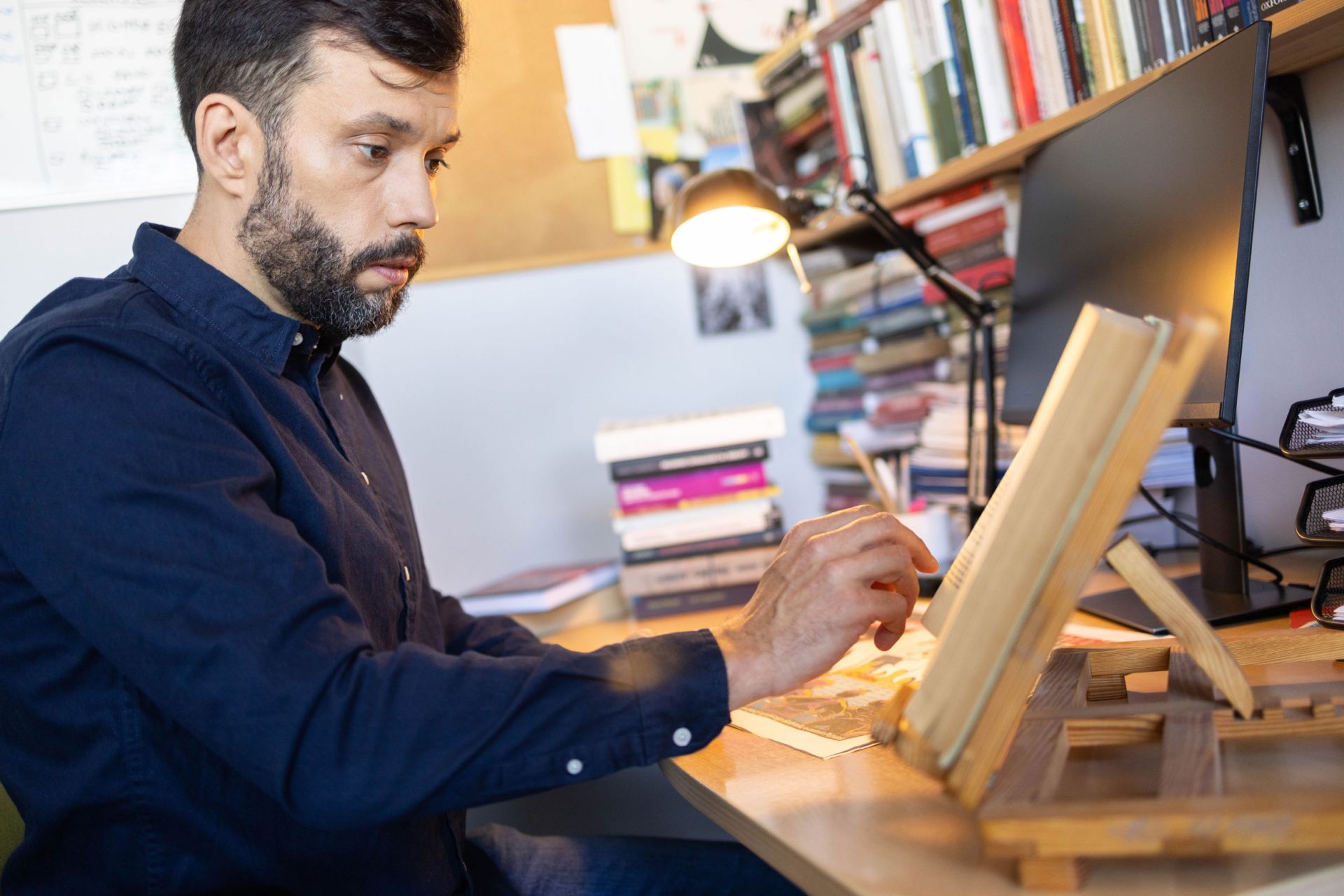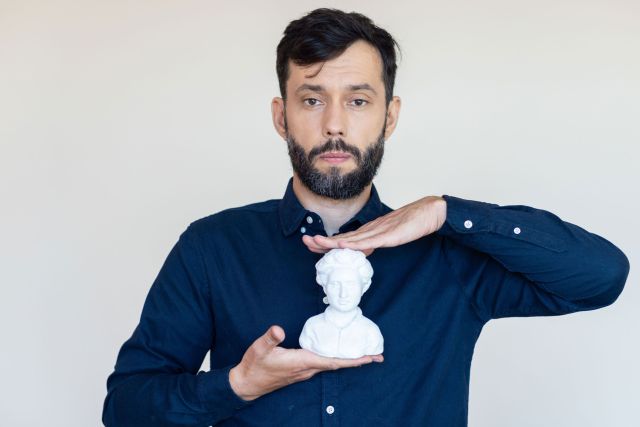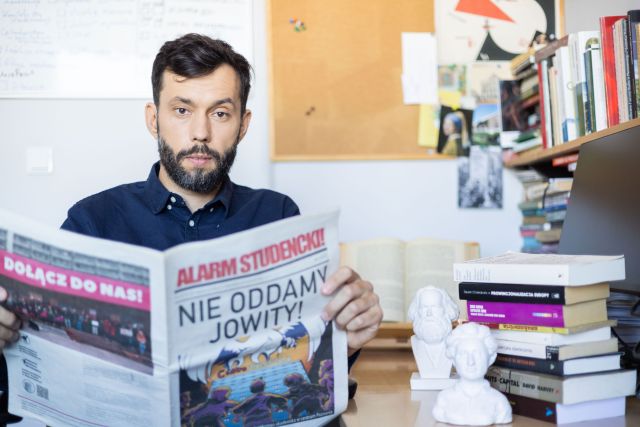Principal Investigator
:
Dr Krystian Szadkowski
Adam Mickiewicz University Poznań
Panel: HS6
Funding scheme
: SONATA BIS 12
announced on
15 June 2022
Why is it that after many years of trying to mobilise Polish academics to publish in top international journals, 1/3 of all publications by Polish authors in the Web of Science database in 2022 were articles published by one publisher with a dubious reputation? Why were the last two decades of calls for Polish universities to catch up with the West accompanied by their successive and dramatic fall in all global university rankings?
 Dr Krystian Szadkowski, photo by Michał Łepecki
To answer these questions, it is not enough to focus on factors such as insufficient funding, differences in mindset or excessive bureaucracy. It is necessary to go back to the source. Since the very start of capitalist transformation, all modernisation efforts in Polish science and higher education have been aimed at aligning the system with the Western model. However, the system was and continues to be very different, and this calls for a serious theoretical analysis and explanation.
Dr Krystian Szadkowski, photo by Michał Łepecki
To answer these questions, it is not enough to focus on factors such as insufficient funding, differences in mindset or excessive bureaucracy. It is necessary to go back to the source. Since the very start of capitalist transformation, all modernisation efforts in Polish science and higher education have been aimed at aligning the system with the Western model. However, the system was and continues to be very different, and this calls for a serious theoretical analysis and explanation.
The goal of this project is to elucidate the specifics that determined the origin and development of the peculiar form of capitalism in Polish science and higher education between 1990 and 2021. Our aim is to develop a new theory to systematically capture its dynamics in terms of peripheral academic capitalism, i.e., a system whose conditions and patterns of production differ, in essence and structure, from those of the centre. A complementary objective is to study the role of international organisations (such as the OECD and the World Bank) in the development of this phenomenon, the role and scale of resistance from students and academics, and the influence of large commercial academic publishers on policy-making in the sector.
The project will collect extensive data on the capitalist reality of Polish science and higher education and how it works, which will furnish the basis for a new theory of peripheral academic capitalism. We will present the main actors and narratives responsible for the shape that academic capitalism has taken in Poland. We will look into the public policies that aimed to transform the sector into a robust system of academic capitalism, determine who was responsible for the discourses developed within it, and how these were shaped by international organizations such as the OECD or the World Bank. We will analyse the resistance with which these changes were met among students and academics and the role of private capital, concentrated mainly in the sector of large commercial academic publishers, in shaping its current form. Last, but not least, we will analyse to what extent and why the form of academic capitalism that emerged in Poland differs from the one present in the countries that are at the centre of the capitalist world-system. The project will allow us to step beyond the unproductive dichotomy of modern debates on sector transformation, which often pits liberal modernisers, who want to copy ready-made solutions from central countries, against conservatives, who oppose the subordination of “Polish science” to Western models.
Project title: Origins and development of peripheral academic capitalism in Poland (1990-2021)
Dr Krystian Szadkowski
He earned his PhD at the Adam Mickiewicz University in Poznań (UAM), while working at the Education International research institute in Brussels within the framework of the Marie Curie-Skłodowska network. He was postdoctoral visiting researcher at the Centre for Global Higher Education, both at University College London and University of Oxford. His work is focused on developing new theoretical languages and methods for the study of science and higher education. He is a member of the AMU’s Scholarly Communication Research Group.


